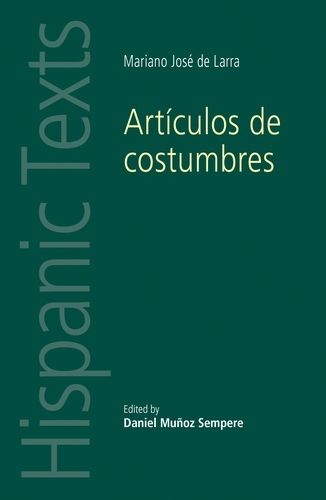Readings Newsletter
Become a Readings Member to make your shopping experience even easier.
Sign in or sign up for free!
You’re not far away from qualifying for FREE standard shipping within Australia
You’ve qualified for FREE standard shipping within Australia
The cart is loading…






This is an annotated critical edition of Articulos de costumbres by the Romantic journalist Mariano Jose de Larra (1809-37), presented with a critical introduction, study guide, glossary and chronology. Larra is still one of the most widely studied Spanish Romantic authors, and his satire of customs and manners in articles such as El castellano viejo, Vuelva usted manana and Nochebuena de 1836 offers an insight into nineteenth century Spanish culture, while probing issues that are still seen as defining of Spanish identity today. Articulos de costumbres, presented here with an extensive annotation that identifies references that have not been previously elucidated, is a central text in the Spanish canon, opening up questions about modern Spain and issues such as political revolution, class identities, social change and the inclusion of Spain within European modernity. – .
$9.00 standard shipping within Australia
FREE standard shipping within Australia for orders over $100.00
Express & International shipping calculated at checkout
This is an annotated critical edition of Articulos de costumbres by the Romantic journalist Mariano Jose de Larra (1809-37), presented with a critical introduction, study guide, glossary and chronology. Larra is still one of the most widely studied Spanish Romantic authors, and his satire of customs and manners in articles such as El castellano viejo, Vuelva usted manana and Nochebuena de 1836 offers an insight into nineteenth century Spanish culture, while probing issues that are still seen as defining of Spanish identity today. Articulos de costumbres, presented here with an extensive annotation that identifies references that have not been previously elucidated, is a central text in the Spanish canon, opening up questions about modern Spain and issues such as political revolution, class identities, social change and the inclusion of Spain within European modernity. – .